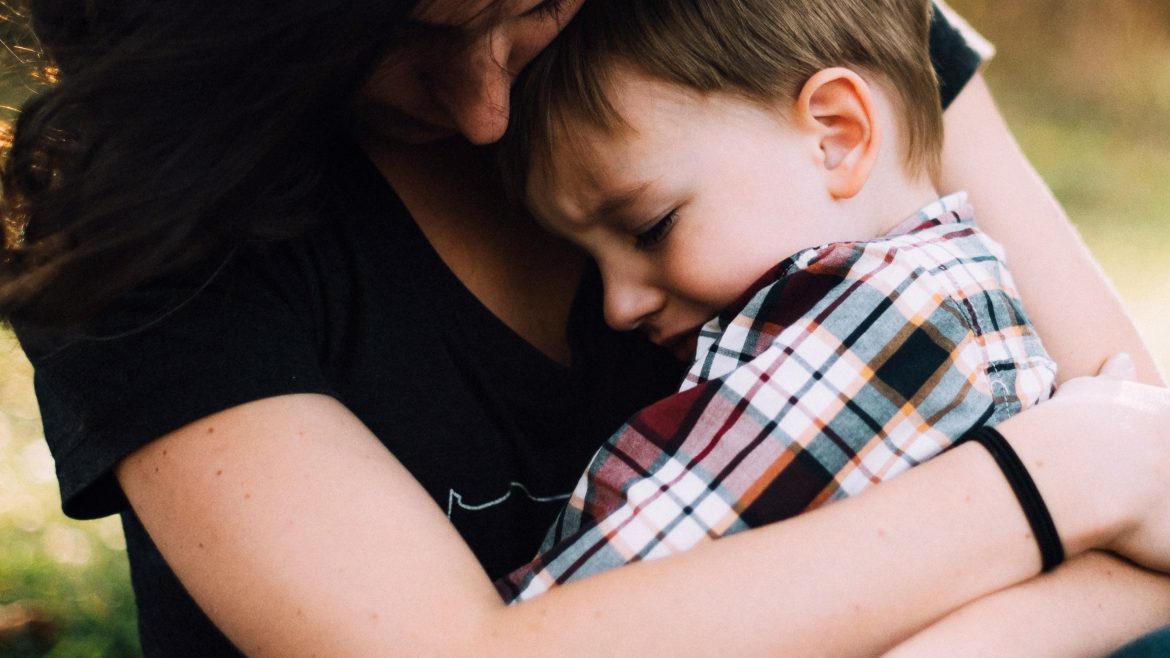Coping with parental anxiety: your guide to parental peace of mind.
https://pareful.com/wp-content/uploads/2024/02/Guide-to-Coping-with-Parental-Anxiety-Pareful-684x1024.jpg 684 1024 Get Started with Pareful Today | Meditations & Therapies Built for Parents Get Started with Pareful Today | Meditations & Therapies Built for Parents https://pareful.com/wp-content/uploads/2024/02/Guide-to-Coping-with-Parental-Anxiety-Pareful-684x1024.jpgAs a parent, it is natural to worry about the well-being and safety of your child. However, when these worries become overwhelming and start to interfere with your daily life, it may be a sign of parental anxiety. This guide will help you understand parental anxiety, its impact on children, common causes, and provide coping strategies to help you find peace of mind.
Understanding parental anxiety
Parental anxiety is a form of anxiety that specifically affects parents. It is characterised by excessive worry and fear about the safety, health, and happiness of your child. While it is normal to have concerns as a parent, parental anxiety goes beyond the usual worries and can often be irrational and uncontrollable.
This type of anxiety can be triggered by a variety of factors, such as the fear of something bad happening to your child, worries about their development or academic performance, or concerns about their social interactions. Parental anxiety can manifest in different ways, including constant thoughts of worst-case scenarios, physical symptoms like difficulty sleeping or stomach aches, and an inability to relax even when your child is safe.
The impact of parental anxiety on children
It is important to recognise that parental anxiety can have a significant impact on children. When parents are constantly anxious, children can pick up on their parents’ worries and fears, leading to increased anxiety in the child as well. This can create a cycle of anxiety within the family.
Children of anxious parents may develop their own anxiety disorders or exhibit symptoms of anxiety, such as difficulty sleeping, irritability, or excessive worrying. They may also become overly dependent on their parents, seeking constant reassurance and becoming reluctant to explore new experiences.
Common causes of parental anxiety
Parental anxiety can stem from a variety of causes, and it is important to identify the underlying factors that contribute to your anxiety. Some common causes of parental anxiety include:
Fear of the unknown: Parenthood brings many uncertainties, and the fear of the unknown can trigger anxiety in parents. Worries about making the right decisions, handling difficult situations, or ensuring the well-being of your child can all contribute to parental anxiety.
Past traumatic experiences: If you have experienced a traumatic event in the past, such as the loss of a loved one or a difficult childbirth, it can increase your vulnerability to parental anxiety.
Pressure to be a perfect parent: Society often places unrealistic expectations on parents, and the pressure to be a perfect parent can lead to anxiety. The constant comparison to other parents or the fear of not meeting societal standards can fuel parental anxiety.
Personal history of anxiety or mental health issues: If you have a personal history of anxiety or other mental health issues, you may be more prone to developing parental anxiety.
By identifying the specific causes of your parental anxiety, you can begin to develop coping strategies that address these underlying factors.
Recognising the signs & symptoms of parental anxiety
Recognising the signs and symptoms of parental anxiety is an important step towards managing and coping with it. Some common signs and symptoms of parental anxiety include:
Excessive worry: Constantly thinking about worst-case scenarios and feeling overwhelmed by worries about your child’s well-being.
Physical symptoms: Parental anxiety can manifest in physical symptoms such as difficulty sleeping, headaches, muscle tension, or stomachaches.
Irritability and restlessness: Feeling on edge, easily irritated, and having difficulty relaxing or concentrating.
Avoidance: Avoiding situations or activities that trigger anxiety, which can limit your child’s experiences and opportunities for growth.
If you recognise these signs and symptoms in yourself, it is important to seek support and explore coping strategies to manage parental anxiety effectively.
Coping strategies for parental anxiety
Managing parental anxiety requires a multi-faceted approach that addresses both the underlying causes and the symptoms. Here are some coping strategies that can help you find peace of mind:
Self-care: Prioritise self-care activities that help reduce stress and promote relaxation. This can include exercise, mindfulness practices, hobbies, or spending time with supportive friends and family.
Seek support: Reach out to a therapist or counsellor who specialises in anxiety disorders. They can provide guidance and help you develop coping mechanisms specific to parental anxiety.
Challenge negative thoughts: Parental anxiety often involves irrational and negative thoughts. Learn to identify and challenge these thoughts, replacing them with more realistic and positive ones.
Practice mindfulness: Mindfulness techniques, such as deep breathing exercises and meditation, can help you stay present and reduce anxiety. Incorporate mindfulness into your daily routine to promote a sense of calm.
Set realistic expectations: Understand that it is impossible to control every aspect of your child’s life. Set realistic expectations for yourself as a parent and focus on providing a safe and loving environment, rather than striving for perfection.
Take breaks: It is important to take breaks from parenting responsibilities to recharge and maintain your own well-being. Ask for help from your partner, family members, or friends to give yourself some time off.
By implementing these coping strategies, you can gradually reduce parental anxiety and create a more peaceful environment for yourself and your child.
Mindfulness & relaxation techniques for parental anxiety
Mindfulness and relaxation techniques can be effective tools for managing parental anxiety. These techniques help you stay present, reduce stress, and promote a sense of calm. Here are some mindfulness and relaxation techniques that you can incorporate into your daily routine:
Deep breathing: Take slow, deep breaths, focusing on the sensation of the breath entering and leaving your body. Deep breathing activates the body’s relaxation response and can help calm anxious thoughts.
Progressive muscle relaxation: Start by tensing and then releasing each muscle group in your body, from your toes to your head. This technique helps release physical tension and promotes relaxation.
Meditation: Set aside a few minutes each day to practise meditation. Find a quiet space, sit comfortably, and focus on your breath or a calming visual. Meditation can help quiet the mind and reduce anxiety.
Mindful parenting: Practise being fully present with your child, engaging in activities without distractions. Pay attention to the sights, sounds, and sensations of the moment, fostering a deeper connection with your child.
Keeping perspective when dealing with parental anxiety
When dealing with parental anxiety, it is important to keep things in perspective. Remember that it is normal to worry about your child, but excessive worry can be detrimental to both you and your child. Here are some strategies to help you keep perspective:
Challenge catastrophic thinking: When anxiety takes over, it is easy to imagine the worst-case scenarios. Challenge these catastrophic thoughts by asking yourself for evidence and considering more realistic outcomes.
Focus on the present: Instead of constantly worrying about the future, focus on the present moment. Engage in activities that bring you joy and create positive memories with your child.
Practise gratitude: Cultivate a sense of gratitude by regularly expressing appreciation for the positive aspects of your life and your child’s life. This can help shift your focus from worries to the blessings in your life.
Celebrate small victories: Acknowledge and celebrate your successes as a parent, no matter how small they may seem. Recognise that you are doing your best and that every effort counts.
By keeping perspective, you can reduce the impact of parental anxiety on your life and create a healthier environment for yourself and your child.
Talking to your partner about parental anxiety
Open communication with your partner is crucial when dealing with parental anxiety. Here are some tips for discussing parental anxiety with your partner:
Choose the right time: Find a calm moment to talk to your partner when you can both focus on the conversation without distractions.
Be honest and open: Express your feelings honestly and openly, letting your partner know how parental anxiety is affecting you and your child.
Listen to your partner: Give your partner the opportunity to share their perspective and concerns. Listen actively and validate their feelings.
Work together: Brainstorm strategies and solutions together. Support each other in implementing coping strategies and seeking professional help if needed.
Remember, you and your partner are a team, and by working together, you can support each other in managing parental anxiety effectively.
Gratefulness for dealing with parental anxiety
Practising gratitude can be a powerful tool in managing parental anxiety. By focusing on the positive aspects of your life and your child’s life, you can shift your mindset and find peace of mind. Here are some ways to cultivate gratefulness:
Keep a gratitude journal: Write down three things you are grateful for each day. They can be small moments, acts of kindness, or positive experiences with your child.
Express gratitude: Take the time to express your gratitude to your child, partner, and other loved ones. Let them know how much you appreciate their support and love.
Create gratitude rituals: Incorporate gratitude into your daily routine. For example, you can start or end each day by sharing something you are grateful for as a family.
Practising gratitude can help shift your focus from worries and anxieties to the blessings in your life, fostering a sense of contentment and peace.
Sign up to Pareful all-access.
Parental anxiety is a common experience, but it doesn’t have to control your life. By understanding parental anxiety, recognising its impact on children, and implementing coping strategies, you can find peace of mind and create a nurturing environment for your child. Remember to prioritise self-care, seek support when needed, and practice mindfulness and gratitude. By taking these steps, you can navigate the challenges of parenting with greater confidence and enjoy the journey of raising your child.
Join Pareful All-Access to access a range of 40+ parent-specific mindfulness resources to help you navigate parental anxiety and promote your own well-being.
You don’t have to face it alone – join us today!
Your journey to harmony begins here.







